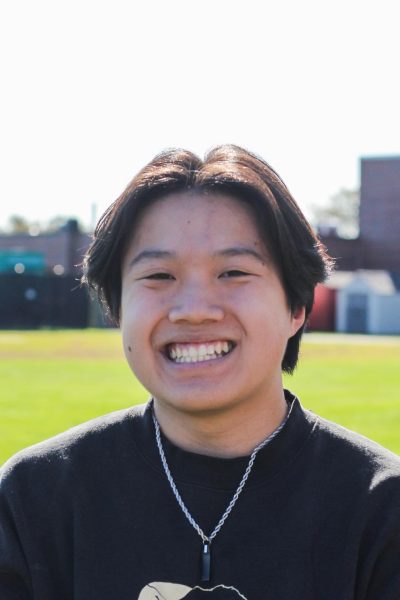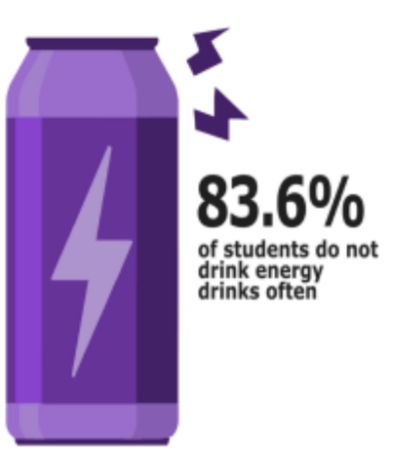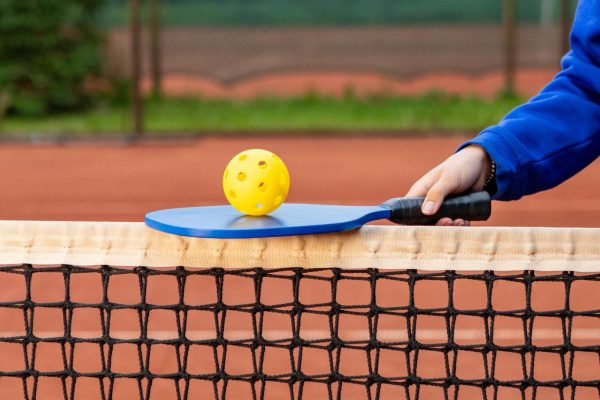CHS athletes on thin ice due to differing schedules
UNSPLASH PHOTO COURTESY OF Austris Augusts
Some CHS students struggle to make it back on time to their home high school for sports resulting in getting punished while others are fortunate to have flexible coaches. https://unsplash.com/license
May 20, 2022
For CHS athletes, the ball is rarely in their court. While some students enjoy competing for their home high school’s sports teams, others find themselves at a disadvantage merely due to attending CHS.
Some CHS students find it challenging to play a sport at their home-school due to transportation issues and contradicting schedules between MCVSD and public schools. While CHS ends at 2:20 p.m., other schools end earlier than this, exacerbating scheduling troubles and leading to many situations where athletes have no choice but to arrive late or even miss practice entirely.
Sophomore Chloe Nguyen of Eatontown is on the Monmouth Regional track and field team. Though she often arrives late to practice, she still finds it manageable since her coaches assign her custom workout drills.
“I get to school around 3 and they start practice at like 2:30, so I’m always late,” Nguyen said.
CHS students also find difficulty in arriving to competitions and matches on time. A student’s home-school will often provide busing from their school to matches at competing schools. However, due to the difference in schedules, most CHS students are unable to arrive at their home-school before the bus departs. This means students must seek alternate methods of transportation or miss the match entirely, risking being cut from the team – an undeserved punishment for merely attending a vocational school.
Junior Nick Martino of Howell explained how he often needed to be picked up from school to get to and compete in his track meets.
“Most of the time I get to the competition late,” Martino said.
While many CHS athletes face transportation issues, the impact that it has differs based on distance, timing and cooperation from coaches.
Junior Luke Chrzan of Middletown plays hockey and volleyball for Middletown North High School. Chrzan explained that he does not have trouble working with his teammates or his coaches.
“My coaches are understanding that I’m going to show up late,” Chrzan said. “They kind of have to be since there is nothing I can really do about it.”
However, other coaches are not always so lenient. Sophomore Emma Makin of Marlboro finds her ability to participate in lacrosse to be hindered by missing practice.
“If you miss a practice because of school or transportation, you’re going to get benched,” Makin said. “There’s nothing we can do about it.”
Transportation is not the only hurdle for CHS athletes. Some face adversity in the way their coaches or extracurricular administration treat them.
“They are more biased towards their students and they take into credit what their students want,” Nguyen said. “Because I’m from a different school, they wouldn’t consider my opinion on some things.”
CHS students can often be viewed as less important than their teammates simply because they attend a different school. Coaches should not be giving out preferential treatment based on what school each athlete attends, and rather should focus solely on talent and ability.
“The athletic director at my school doesn’t love the kids who come from different schools,” said sophomore Kate Feigus of Manasquan. “I’d like it more if he could integrate us more into the program.”
Freehold Township High School tennis coach Anthony Martinez acknowledges the difficulties that CHS students face when it comes to being an integrated member of a team at their home high school. He understands that CHS athletes are unable to see their teammates throughout the school day, which may make it challenging to bond with their teammates and foster a sense of unity. However, Martinez feels that, with time, these issues dissolve as the focus shifts from what school its members attend to the competitiveness of the sport.
“It catches up throughout the year,” Martinez said. “Even though they only see you for two hours a day, they still get to see you as a human being.”















